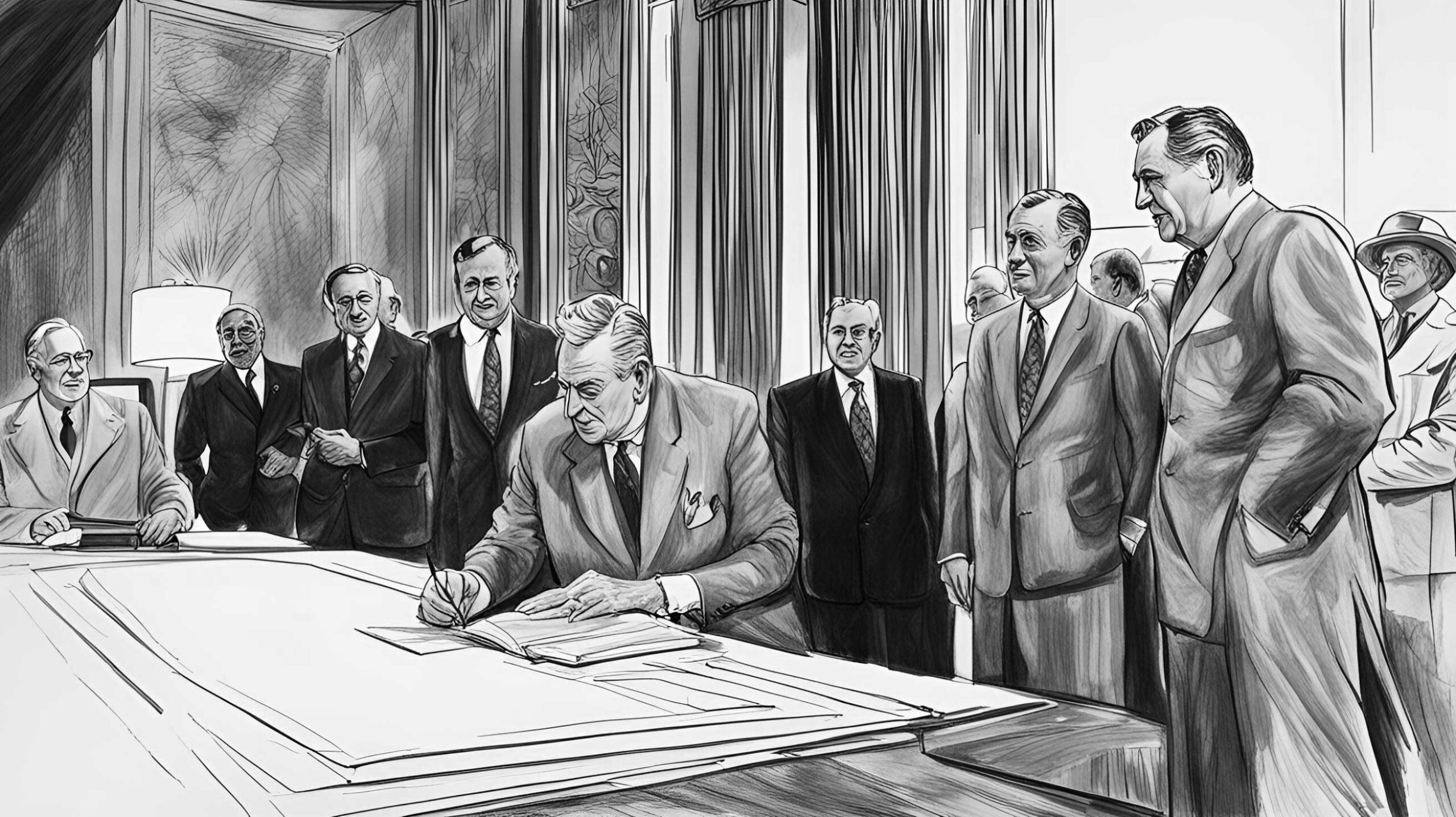Flashback to December 26
American History

On March 27, 1866, President Andrew Johnson made the controversial decision to veto the civil rights bill, which would later become the 14th Amendment. This event marked a significant moment in American history, as it highlighted the ongoing struggle for racial equality and the power dynamics of the post-Civil War era. In this article, we will delve into the details of this event, its implications, and its lasting impact on the fight for civil rights.
The Civil Rights Act of 1866 aimed to grant citizenship and equal rights to all individuals born in the United States, regardless of race or color. The bill received overwhelming support from the Republican-controlled Congress, who sought to dismantle the remnants of slavery and ensure the protection of civil liberties for all citizens. However, President Johnson, who sympathized with the Southern states and believed in their right to establish their own racial policies, opposed the legislation.
Johnson’s veto of the civil rights bill sparked outrage among Republicans, as it represented a significant setback to their vision of a more inclusive and equal nation. The President argued that the bill violated states’ rights and questioned the constitutionality of such legislation. Furthermore, he believed that the 14th Amendment, which aimed to address the issues raised by the civil rights bill, was an overreach of federal power.
Despite Johnson’s opposition, the civil rights bill was passed by Congress with the required two-thirds majority, making it the first major legislation to override a presidential veto in American history. This significant milestone demonstrated the determination of Republicans to pursue their vision of equality and paved the way for the eventual passage of the 14th Amendment.
The 14th Amendment, ratified in 1868, sought to secure the equal protection of rights for all citizens, regardless of race. It granted citizenship to all individuals born or naturalized in the United States and prohibited states from depriving any person of life, liberty, or property without due process of law. Additionally, it stipulated that states must provide equal protection under the law to all individuals within their jurisdiction.
The inclusion of the equal protection clause in the 14th Amendment was a direct response to President Johnson’s veto of the civil rights bill. It aimed to address the concerns raised by Johnson and solidify the principles of racial equality and justice in the United States Constitution. By enshrining these principles, the amendment laid the foundation for future civil rights legislation and legal precedents.
The passage of the 14th Amendment marked a turning point in the fight for civil rights in America. It provided a constitutional framework to challenge racial discrimination and injustice, and it served as a catalyst for subsequent civil rights movements. The amendment’s impact cannot be overstated, as it not only abolished the institution of slavery but also set the stage for landmark Supreme Court decisions, such as Brown v. Board of Education and Loving v. Virginia, which further advanced the cause of racial equality.
President Johnson’s veto of the civil rights bill on March 27, 1866, and its subsequent transformation into the 14th Amendment, were pivotal events in American history. They highlighted the deep divisions and power struggles within the nation during the post-Civil War era. However, the passage of the 14th Amendment represented a significant step forward in the fight for civil rights, setting the stage for future progress and inspiring generations to champion equality and justice for all.
We strive for accuracy. If you see something that doesn't look right, click here to contact us!
Sponsored Content

US forswears armed intervention…
On December 26, 1933,…

Wood-pulp paper first exhibited,…
Experience the historic milestone…

American Revolution: The British…
Experience the pivotal moments…

Harold B Lee, US…
"US Mormon Church leader,…

Maiden voyage of first…
Commodore Cornelius Vanderbilt set…

Federal government took over…
On December 26, 1917,…

